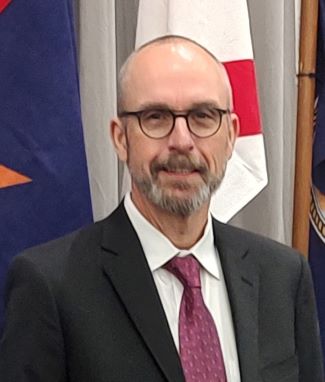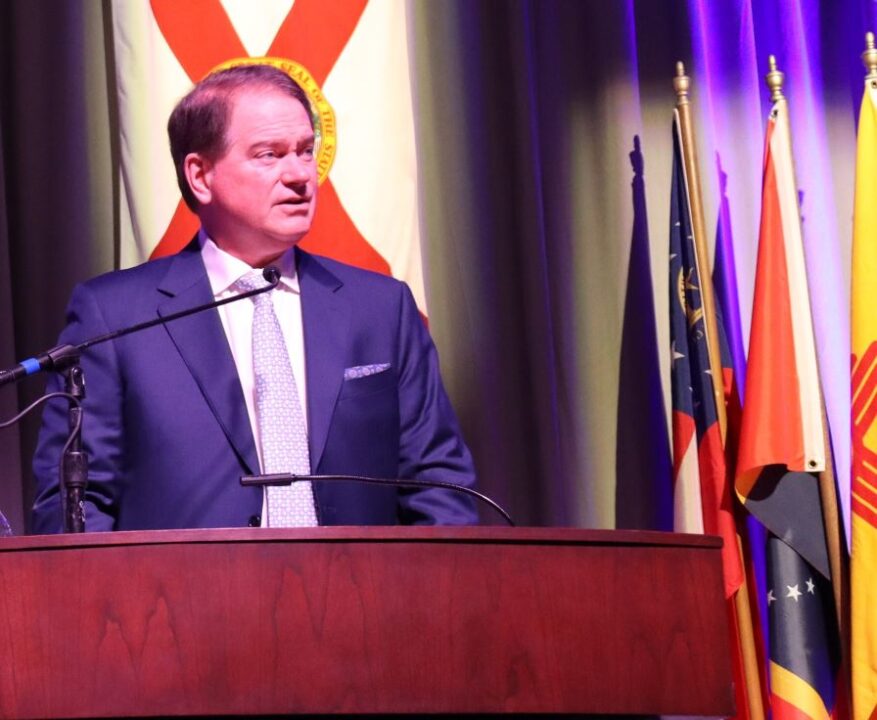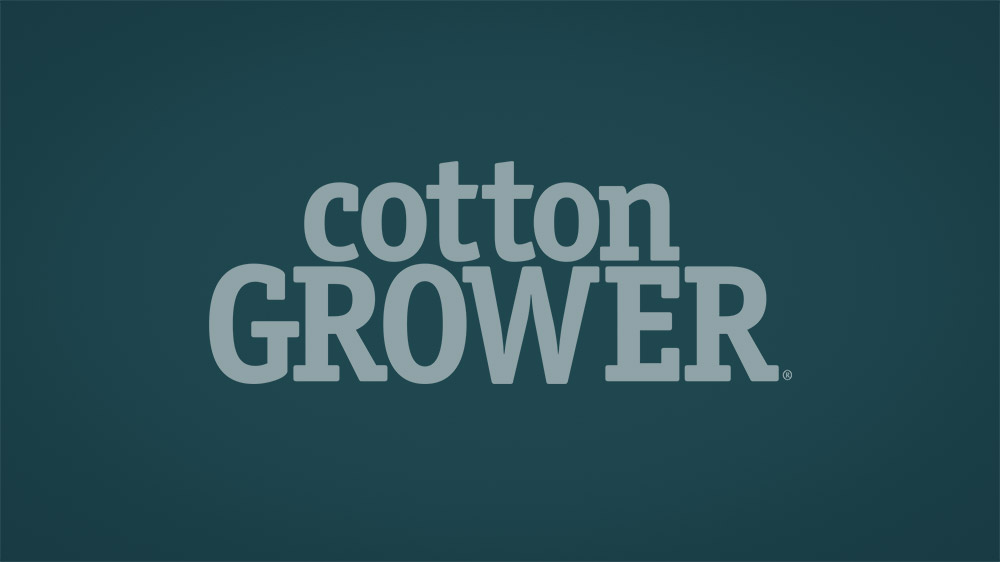Lone Star Leadership for Cotton
 Shawn Holladay (Photo: Jim Steadman)
Shawn Holladay (Photo: Jim Steadman)
Shawn Holladay is quick to define himself as just a cotton farmer, and a good one at that. But he has also become quite an industry expert on farm policy, especially when it comes to cotton and how it could impact his farm and every acre of cotton across the country.
And with deliberations beginning on the next farm bill, Holladay is most certainly the right person at the right time to serve as the National Cotton Council’s (NCC) 2023 Chairman.
He was elected to the position during the NCC’s annual meeting in February and hasn’t slowed down since then.
Holladay — along with his wife, Julie, and daughter, Katy — operate H2H Farms, about 50 miles south of Lubbock, near Lamesa. More than 90% of their total acres are devoted to cotton, with the rest in peanuts.
“I grew up farming,” says Holladay says. “I was driving a tractor when I was 11 years old, so it’s kind of in my blood.”
For the past 27 years (and counting), industry leadership has also pulsed through his veins.
Holladay credits Kent Nix — former chairman of The Cotton Board and a long–time family friend — with getting him started in industry service.
“When I was younger, I was at a Boll Weevil Eradication meeting and made the mistake of making a couple of comments,” he recalls. “Kent turned around and looked at me and said, ‘We need to get you involved.’”
Before long, Holladay was active with Lamesa Cotton Growers, then moved onto the executive committee at Plains Cotton Growers. That led to the NCC, where his role and activities have steadily increased year after year.
He first got involved with the Council’s foreign policy work during the Brazil case and chaired the American Cotton Producers Foreign Policy Task Force for several years. He’s been working on various committees and tackling different jobs within the NCC ever since.
Farm Policy Challenges Ahead
Holladay acknowledges that he’ll be spending a lot of time in Washington, DC, this year championing cotton through the farm bill process.
“I expect to state our case and work with different people within Congress on the farm program,” he says. “Ever since the Brazil case, we’ve either been trying to get some sort of level of support for cotton back in the farm program or make a change to something that works for us. Fact is, we’ve been in some sort of negotiation for the past 10 years.”
Holladay sees several key challenges to the deliberation process this year.
“I think the biggest problem we have is with the ad hoc money that’s been spent over the past few years, whether it be China trade payments or disaster payments due to environmental difficulties,” he says. “That’s all emergency spending that worked for producers in trying times. But it’s not in baseline and doesn’t go into the farm bill equation. Working to get some of those moneys adjusted or budgeted to increase our baseline is project number one. Hopefully, we’ll be able to accomplish that.
“Other than that, it’s basically managing the common things that we always face for cotton. We don’t want harmful amendments on crop insurance or on the Title I safety net that we have now. We need a better deal if we can possibly achieve it.
“When you look at the amount of money we’re having to spend growing these crops in in all commodities, and the level of support that they have underneath them, there’s such a huge gap,” he explains. “You have to be in such a negative cash flow basis to ever impact that safety net. That’s a huge problem, and I don’t know if the political will is there to address that or not. But we’re going to certainly be working on it.”
The Value of Industry Involvement
All of this work means time away from his real job on the farm. Holladay knows he’s fortunate to have a strong support system in place to make decisions and keep things moving ahead at home and on the farm.
“I’ve been doing this a long time, and I know the value of it,” says Holladay. “I think one of the most important things we can do as leaders is develop new leadership in the next generation coming up and get them involved. When I first came in years ago, I had a guy tell me that you’re either going to have a seat at the table or you’re going to be what’s for dinner. We may not get exactly what we want, but we want to be at the table every time. And it’s imperative that we support our local, regional, and national organizations, because that’s the only defense we have in some situations.”
The entire Holladay family takes that leadership very seriously. Julie was appointed to The Cotton Board several years ago and is very involved with their programs. Katy is getting started with the NCC’s Policy Education Group (in addition to managing a lot of the insurance issues and loan documentation for the farm).
“Farming is our life, and we know through experience that one of the most important things we do as American farmers is to support our industry,” Holladay notes. “I’ve met a lot of people in this and other organizations that who have taken their time to blaze a trail in front of us. You can’t advance your cause if you’re not involved in doing what you need to be doing.”









